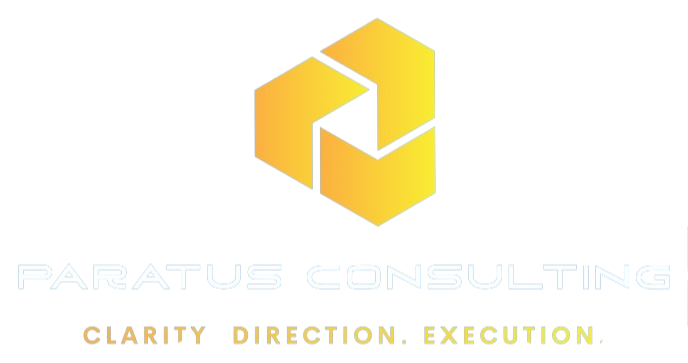Self Censorship May Be Killing Your Success

I had the opportunity to train a remarkable group of Learning and Development professionals from a prominent company last week. The training session, called CONNECT for Teams, focuses on creating deeper connections within teams, including hybrid and remote teams. During one of the breakout sessions, there were lively discussions and brainstorming activities. As I actively participated in one particular breakout, I noticed that one participant was holding back. It was evident that they had valuable insights to contribute. Later, in a one-on-one conversation, I probed further and discovered that they were suppressing some great ideas and contributions to the team. It was at that moment I highlighted that they were "violating their own constitution by censoring their freedom of speech." That is how I like to present self-censorship. This prompted a discussion on the topic of self-censorship, its reasons, and its implications. Let's talk about it.
As a leadership development professional, I have witnessed firsthand the transformative power of a growth mindset, curiosity, and creativity in the professional world. These competencies not only drive personal growth but also foster innovation and success within organizations. However, there is a hidden obstacle that often inhibits these qualities: self-censorship. In this article, we will explore the impact of self-censorship on our growth mindset, curiosity, and creativity, and discover strategies to overcome it.
The Influence of Self-Censorship on Growth Mindset:
A growth mindset is the belief that our abilities and intelligence can be developed through dedication and hard work. Unfortunately, self-censorship can stifle our growth mindset. According to a study conducted by Roy Baumeister et al. (2018), when we hold back our ideas and opinions due to fear of judgment or criticism, we limit our intellectual growth. Harvard Business Review (2021) further reveals that self-censorship leads to a decline in risk-taking and a reluctance to embrace challenges. To foster a growth mindset, we must break free from the chains of self-censorship.
Self-Censorship's Effect on Curiosity:
Curiosity is the fuel that drives continuous learning and exploration. However, self-censorship can dampen our natural curiosity. Jennifer Mueller et al. (2019) conducted a study that highlighted the link between self-censorship and decreased curiosity. When we hold back our thoughts or ideas, fearing they may be dismissed or ridiculed, we miss out on valuable opportunities for growth. Forbes (2022) reports that professionals who fear judgment are less likely to ask questions and seek new knowledge. It is clear that overcoming self-censorship is crucial to nurturing our curiosity.
Impact of Self-Censorship on Creativity:
Creativity is the cornerstone of innovation and problem-solving in the workplace. However, self-censorship stifles our creative thinking. Teresa Amabile's research (2017) has shown that self-censorship has a negative relationship with creativity. When we silence our unique perspectives and ideas, we limit our ability to generate innovative solutions. Fast Company (2021) provides case studies of companies that encourage open expression and creativity, resulting in remarkable breakthroughs. To unlock our creative potential, we must embrace authenticity and overcome self-censorship.
Strategies to Overcome Self-Censorship:
To overcome self-censorship, we need to foster a culture of psychological safety and open communication in the workplace. Creating an environment where individuals feel safe to express their thoughts and ideas without fear of judgment or retribution is crucial. Encouraging diverse perspectives and constructive feedback enables us to break free from self-imposed limitations.
Additionally, providing training and resources to develop a growth mindset, curiosity, and creativity can be instrumental in overcoming self-censorship. By equipping ourselves with the skills and knowledge necessary to embrace our authentic selves, we empower ourselves and those around us to reach new heights of success.
Here are seven very tactical daily activities to overcome self-censorship in the workplace:
- Practice Thought Awareness: Throughout the day, regularly pause and reflect on your thoughts and self-censorship tendencies. Notice any moments when you feel hesitant to speak up or share your ideas. By increasing awareness, you can consciously challenge and overcome self-censorship.
- Set Small Goals: Set a goal each day to share at least one idea or perspective during meetings or discussions. Start with smaller contributions and gradually increase your comfort level. Celebrate each step forward, no matter how small.
- Seek Feedback: Actively seek feedback from trusted colleagues or mentors on your ideas and contributions. Request specific feedback on areas where you may be self-censoring. This will help you gain perspective and identify areas for improvement.
- Practice Expressive Writing: Take a few minutes each day to engage in expressive writing. Write freely and without judgment about your thoughts, ideas, and experiences. This practice can help you process emotions, overcome self-doubt, and increase your comfort with self-expression.
- Engage in Diverse Conversations: Actively seek out conversations with colleagues from diverse backgrounds or perspectives. Engaging in discussions outside your immediate circle will expose you to new ideas and challenge your own biases or self-censorship tendencies.
- Create a Supportive Network: Cultivate a network of trusted individuals who encourage and support your self-expression. Share your concerns with them, seek advice, and collaborate on projects. Having a support system can boost your confidence and help you overcome self-censorship.
- Reflect on Successes: At the end of each day, reflect on situations where you successfully expressed yourself without self-censorship. Acknowledge and celebrate these moments. By focusing on your successes, you reinforce the belief in your ability to contribute meaningfully.
I urge you to recognize the impact of self-censorship on your growth mindset, curiosity, and creativity. DO NOT violate your own "constitution's right to freedom of speech". Embracing authenticity and breaking free from the fear of judgment or criticism is the first step towards unleashing your full potential. By fostering an environment that values open expression, encouraging diverse perspectives, and providing the necessary training and resources, we can create workplaces where individuals thrive and innovation flourishes. Let us break free from self-censorship and unlock our true capabilities, leading to personal and organizational growth like never before.

